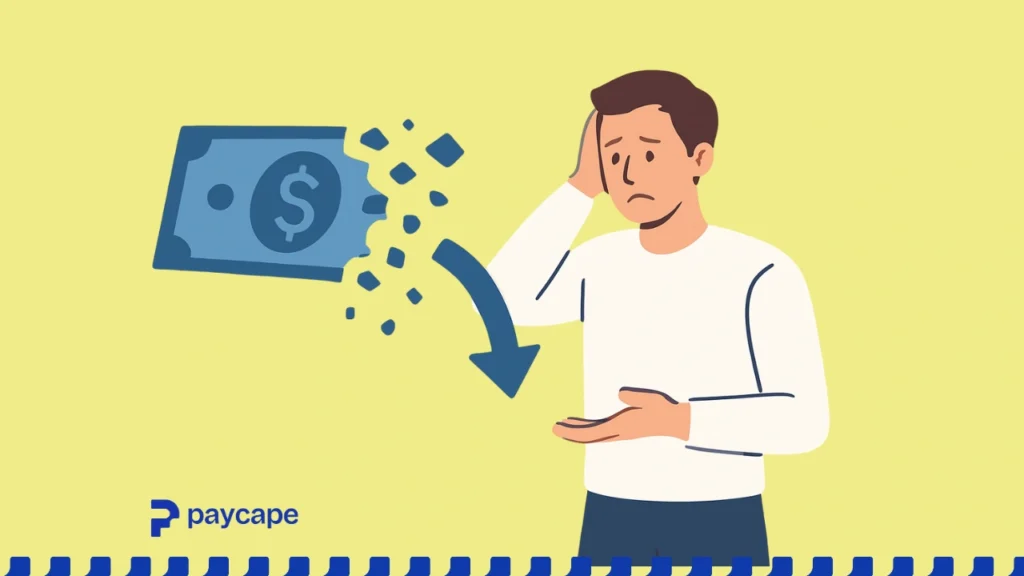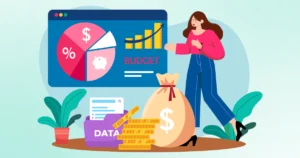It’s payday. Your phone buzzes with that sweet credit alert, and for exactly 2.3 seconds, you feel like Dangote. Then reality kicks in faster than Lagos traffic on a Monday morning.
Rent. Transport. That friend you borrowed from. Data and electricity subscription. Suddenly, your 6-figure salary looks more like pocket change, and you’re wondering if the bank made a mistake with the decimal point.
If this sounds familiar, you’re not alone. The “salary vanishing act” is a Nigerian epidemic that affects everyone from fresh graduates to seasoned professionals. But here’s the truth nobody talks about: it’s not about how much you earn – it’s about what happens in those crucial first minutes after payday.
Let me break down this financial mystery and, more importantly, show you how to keep your money in your account long enough to actually save some.
The 2-Minute Meltdown: What Really Happens
Research from behavioral economists shows that people treat “windfall” money (like salary payments) differently from money they already have. The moment that salary hits your account, your brain goes into “spending mode.”
Here’s the typical 2-minute breakdown:
Minute 1: Mental calculation of all the things you’ve been “waiting to buy” Minute 2: Actual transfers to cover debts, subscriptions, and “small” purchases
Before you know it, you’ve allocated 80% of your salary to expenses that somehow felt less intimidating when your account was empty.
The Hidden Costs of Instant Spending
Now, let’s do some real math. If you immediately spend 90% of your ₦150,000 salary, here’s what you’re really losing:
- Emergency Fund Deficit: Without savings, one small crisis (phone damage, medical bill) creates debt.
- Investment Opportunity Cost: ₦20,000 monthly savings could grow to ₦1.68M in 7 years (excluding any possible interest).
- Financial Stress: Living paycheck to paycheck increases anxiety and decision fatigue.
According to money and mental health, people who suffer from financial stress can’t cover their basic needs, which in turn affects their health severely. This means that, without financial stability, you are prone to crisis.
Breaking the 2-Minute Cycle: Your Action Plan
Now that you’ve seen how important it is that you keep your financial life at its best, how can you start managing your salary well? See these 4 simple steps:
Step 1: Create a 24-Hour Rule
Before touching your salary, implement a mandatory 24-hour waiting period. This simple delay can reduce impulse spending, allowing you to make a better decision with your salary.
How to do it:
- Set up a salary to go into a separate “holding” account
- Schedule automatic transfers to your main account after 24 hours
- Use this time to review your actual priorities
Step 2: Pay Yourself First (Literally)
The moment your salary arrives, automatically move your savings to a different account. Start with just 10% – that’s ₦15,000 on a ₦150,000 salary. Get yourself out of the urgent 2k wahala.
Recommended allocation:
- 10% Emergency fund
- 5% Investment/long-term savings
- 85% Living expenses
Use budgeting apps to automate these transfers and track your progress.
Step 3: Categorize Your “Immediate” Expenses
Not all expenses are created equal. To mitigate for any unforeseen circumstances, you can create three categories:
True Emergencies (Pay immediately):
- Rent/mortgage
- Utilities about to be cut off (Electricity, TV, etc.)
- Medical expenses
Important but Flexible (Can wait 48-72 hours):
- Friend repayments (unless previously agreed)
- Non-essential shopping
- Entertainment subscriptions (What are you doing on Netflix?)
Lifestyle Choices (Should be budgeted, not impulsive):
- Eating out
- New clothes
- Latest gadgets (No allow iPhone wyne you)
Step 4: Build Your Financial Buffer
The key to breaking the cycle is creating space between income and expenses. Here’s how, in the first 1 – 2 weeks, track every expense without judgment. The next two weeks, identify your top 5 “salary killers”. In month 2, implement the 24-hour rule. Lastly, you can increase savings to 15%.
For comprehensive guidance on building sustainable financial habits, check out our ultimate guide to budgeting.
Real African Solutions for Common Salary Issues
Many Africans often seem to have some complaints about salaries at the end of the month. One thing or the other seems to always be the problem, and below, I’ve picked the most common scenarios. I will be using Nigerians to paint this picture.
Case 1: “But I Have Too Many Debts!”
This can be your case at the end of each month, you feel overwhelmed by the little amount you’ve borrowed here and there. The way to solve this is simple: list all debts and prioritize:
- High-interest loans (payday loans, some loan apps)
- Friend/family debts (for relationship preservation)
- Lower-interest institutional debts
After you’ve set this order, you can now pay minimums on everything except your highest priority debt.
Case 2: “My Salary Is Too Small to Save!”
Yes, but we can all start from somewhere, right? So start with ₦1,000 weekly. That’s ₦52,000 annually – enough for most emergencies. The most important thing in this case is that the habit matters more than the amount.
Case 3: “Unexpected Expenses Always Come Up!”
That’s exactly why you need an emergency fund! Start small and build up. Every ₦5,000 saved is one less crisis that will derail your progress. Stay sharp!
Your Money, Your Future
Remember, the goal isn’t to live like a monk or never enjoy your hard-earned money. It’s about being intentional with your spending so you can afford both today’s needs and tomorrow’s dreams.
Every naira that disappears in those first 10 minutes is a naira that could have been working for your future self. Break the cycle, build the buffer, and watch your financial stress transform into financial confidence.




